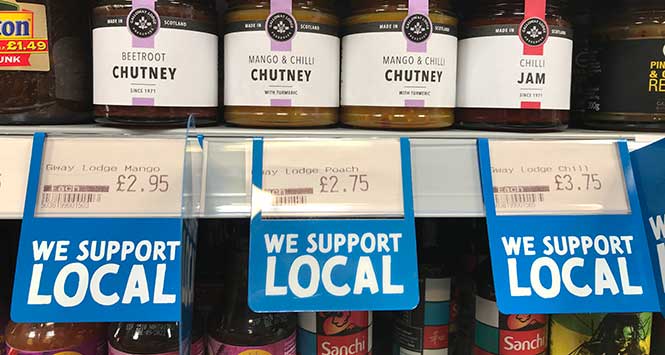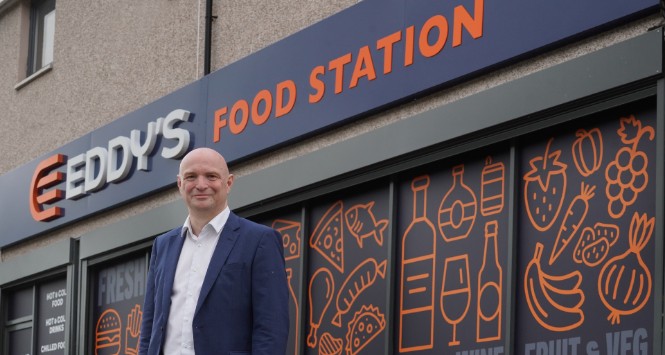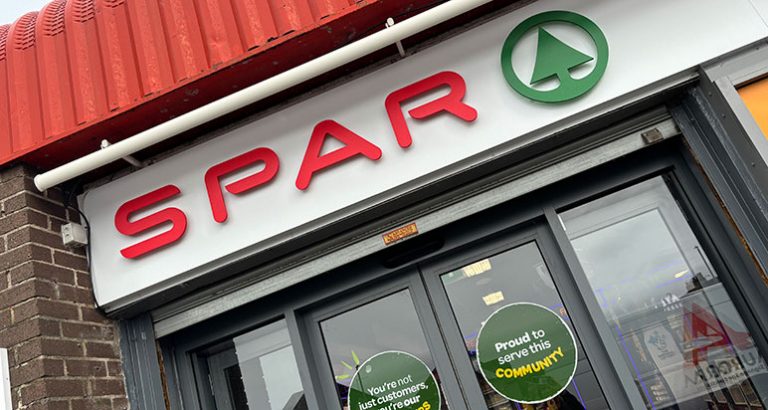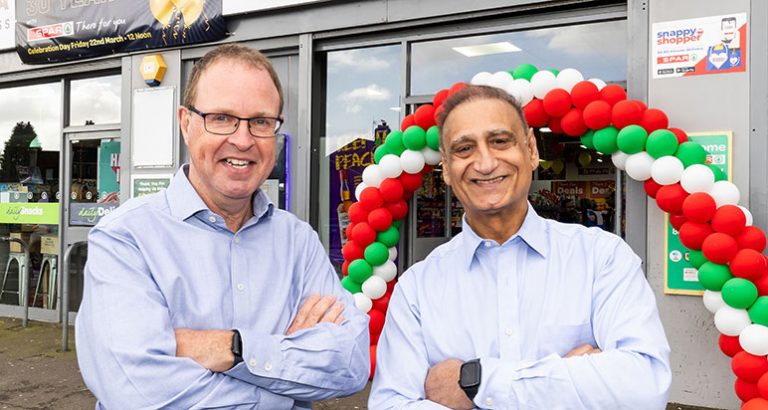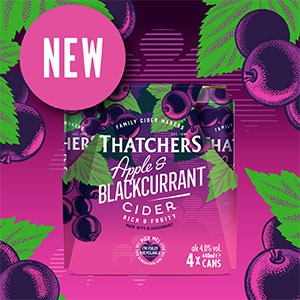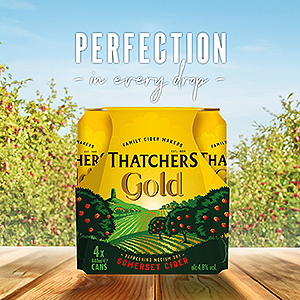As the Scottish Retail Food & Drink Awards, an annual awards programme dedicated to the getting more Scottish products into Scottish shops, prepares to announce its 2023 winners later this month, SLR examines the importance of local sourcing.
By Findlay Stein
The idea of local sourcing isn’t a new one, but many local retailers really got switched on to it during the pandemic when – as stocks got low – a number of big brands effectively turned their backs on c-stores to keep their supermarket pals sweet.
As usual, our sector rose to the challenge, and forged new links with smaller, local producers to keep shelves stocked with essentials.
But going local isn’t something you should do out of necessity: sourcing your stock from within Scotland or even closer to home has a number of benefits for you, your customers, your community and indeed everyone else.
Because the products aren’t travelling halfway round the world, local sourcing reduces carbon emissions and energy consumption, which can help slow down climate change.
What’s more, reduced travelling time also results in fresher products with a long shelf life. Local sourcing also supports your local economy and creates jobs in your area.
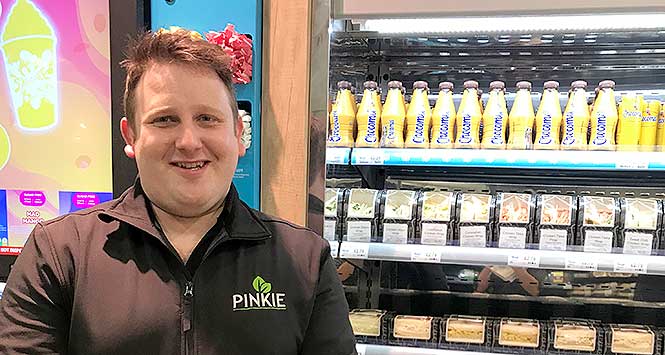
There’s also a simpler reason, as Dan Brown, Manager of Pinkie Farm Convenience Store in Edinburgh, explains: “We’ve always tried to use local producers because our customers like local products.”
So, by offering locally sourced products, you’re burnishing your image as a retailer with a demonstrable commitment to sustainability, supporting local businesses, and promoting the local economy. And this can really set you apart from your competitors and appeal to shoppers who also care about sustainability and supporting their community. It’s a win-win.
The benefits don’t end there though. You can also build stronger relationships with suppliers. In Dan’s words, local suppliers “tend to be very responsive, very proactive and very willing to work with us in ways that big producers can’t. We’ve had local suppliers happy to create bespoke products just for the store, for instance.”
What is local?
But what does ‘local’ mean to Scots – and what types of products are they looking for? A survey conducted on behalf of the Scottish Retail Food & Drink Awards (SRFDA) by its research partners 56 Degree Insight in November 2021 discovered that for 52% of Scots, ‘local’ means ‘Scottish’ – though for a sizeable minority it is more local than this: regional or even their town or city (39%).
So, for convenience stores to entice Scottish buyers, stocking products which clearly display their origins to the most local of levels will appeal. Illustrating this, when respondents were asked about their preferences for either ‘Scottish’ or ‘British’ branding, there was little doubt that a Scottish identity was important for the overwhelming majority: all things being equal (price, quality etc.), 65% would select a product labelled Scottish and displaying the saltire over one that carried British branding such as a Union Jack – only 10% would prefer this type of branding.
The research was strictly non-political and focused on the appeal, purely from a product/branding perspective. There is no doubt that flagging up the ‘Scottishness’ of food and drink products attracts interest and presents a real opportunity for convenience stores who are better placed to source and stock smaller, locally sourced food and drink items than their supermarket rivals.
The survey also discovered that moving beyond ‘Scottish’ branding and stocking products which are as local as possible could yield even greater returns: 22% of Scots describe local provenance as ‘very important’ and another 41% describe it as ‘quite important’ when it comes to decisions on what they might buy.
This demonstrates a clear desire for locally produced food and drink. But what particular types of ‘local product’ have the greatest appeal? Four categories stand out: fresh meat, poultry and fish; fruit and vegetables; dairy products; and bakery goods. In each case two-thirds or more of Scots describe locally produced/reared/grown versions being readily available as important to them.
This will probably strike a chord with retailers who stock local bakery or meat products and know that, furthermore, customers are often willing to pay a premium for these.
That said, there was clear support for locally produced food and drink across all categories. This means that if convenience stores took the lead in sourcing such products, it would provide them with clear ammunition in the fight against the mults.
Cost-of-living crisis
So, we can all agree that local sourcing is the greatest thing since sliced bread (from the bakery just up the road, obviously) and that, all things being equal, the majority of Scots prefer Scottish products. But all things aren’t equal, are they? Locally sourced products can be more expensive than their mass-produced inferior rivals and everyone’s counting their pennies just now.
A second 56 Degree Insight survey conducted at the height of the cost-of-living crisis last November unsurprisingly found that price has become a more important factor for more than three-quarters (78%) of Scots. What’s more, over half (56%) agreed that factors other than price are now less important when they are shopping.
This has resulted in changes in how people shop – in particular by an increasing use of discounters, frozen food shops, and stores like B&M.
However, there seems to be no decline in the desire to buy local produce, shop locally and to do the right thing in relation to environment – so long as the price is affordable.
Again, over half (55%) of the 1,000 Scots surveyed agreed that they are concerned about where the food they eat comes from and that, despite rising prices, products being produced locally remains important for a significant percentage of them, with 42% rating 7 or more out of 10 on a scale where 0 is ‘not at all important’ and 10 is ‘vitally important’.
In fact, one-third stated that compared to a year ago food and drink being produced locally has become more important to them (8% much more/4% slightly more) while its importance has not changed for most (58%).
It’s not surprising that the survey found that products being produced locally continue to be more important for certain demographic groups – especially those less affected by the cost-of-living crisis and those in the more affluent socio-economic groups.
With shoppers keen to make every penny count, the survey also asked if it was important that a product’s quality is recognised through an award/badge shown on the packaging. Again, a significant percentage (38%) gave this a rating of 7 or more out of 10.
SRFDA

This brings us nicely to the Scottish Retail Food and Drink Awards, which were launched in 2020 and will present its third batch of awards at the Radisson blu in Glasgow on 23 May.
The SRFDAs have local sourcing at their heart and one simple goal – to help get more fantastic Scottish food and drink products onto more retail shelves in Scotland.
They encompass the entire food and drink retailing sector – from the smallest deli all the way up to the supermarkets. Similarly, the SRFDAs take in producers and suppliers of all sizes from one-person artisan businesses to global giants. If their products are made and marketed in Scotland, they can enter.
A quick glance through the list of finalists will confirm this, with products from Aldi and M&S on the shortlist, along with well-kent names like Mothers Pride and Equi’s rubbing shoulders with brand’s you’ve possibly never heard of, like Nudie Snacks and Puddledub.
And that’s very much the point, as SRFDA Sales Director Helen Lyons explains: “We aim to unearth the very best products that Scotland has to offer – then help get them on shelves across Scotland.”
“Every product is judged on its own merits – not compared to others – during a fair and transparent month-long judging process which gives all products the same opportunity to win regardless of where they came from.”
All winners and shortlisted entrants are permitted to carry the SRFDA on-pack logo, something that – as we’ve already seen – helps influence buying decisions and grows sales.
Supporting Scotland
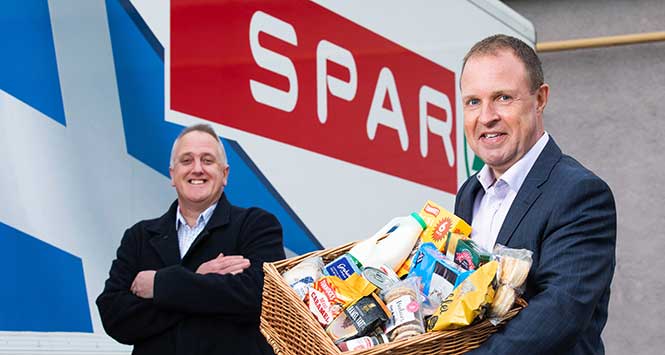
Since their inception, the Awards have attracted a prestigious band of sponsors and partners, all of whom recognise the importance of local sourcing, particularly products from smaller businesses.
Spar Scotland, for example, are supporting the Awards for the third year in a row. The company’s CEO, Colin McLean, said: “As a family-owned business with more than 100 years of history in serving hundreds of communities across Scotland, we understand just how important it is to support the country’s many fantastic small local producers.”
Commenting on the SRFDAs, McLean added: “We view this as a fantastic celebration of Scottish food and drink but with a clear commercial aim: to grow sales for both small producers and the retailers who stock their products.”
He concluded: “Supporting small, local producers helps sustain local economies across Scotland, it helps safeguard jobs and it helps minimise our impact on the planet thanks to significantly reduced ‘road miles’. This is a great opportunity to help Scotland’s local suppliers grow and thrive.”
Local Food Champions
The Scottish Wholesale Association (SWA) is another SRFDA sponsor which demonstrated its commitment to local sourcing with the launch of a new Wholesale Local Food Champion training programme.
The programme encourages Scotland’s wholesalers to appoint an individual to take responsibility for shaping the local sourcing strategy within their business.
Colin Smith, SWA Chief Executive, said the goal is to see wholesalers nominate at least one individual within their business to be trained to become a Wholesale Local Food Champion.
“These champions will then have an excellent knowledge and understanding of the importance of a strong, local food and drink supply chain – and become a point of contact for suppliers to start engaging with your business,” Smith said.
“Comprehensive training will also include one-to-one mentoring support with each champion receiving a certificate of completion and Wholesale Local Food Champion marque to help producers easily identify individuals/wholesalers that can potentially help support their business.”
The programme is fully funded and backed by the Scottish Government, and the first 20 Champions start training this month.
SGF goes local
Another Scottish Government-funded scheme designed to boost the availability of Scottish produce in stores is the Go Local Programme. Launched by SRFDA partner the Scottish Grocers Federation in 2020, it offers Scotland’s local retailers up to £5,000 in matched funding to provide dedicated, long-term display space for locally-sourced Scottish products.
Applications are still open to phase 4 of the programme, which will allocate a further £190,000 to least 40 geographically and demographically diverse stores to help consumers access more fresh, quality Scottish produce.


